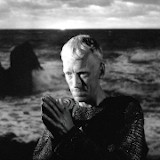Forum-based country descriptions
3 posts • Page 1 of 1
Forum-based country descriptions
Below are draft forum-based country descriptions. I wrote these descriptions and population breakdowns in collaboration with the controllers of each country approximately two years ago. I am sharing them for reference purposes. For the sake of clarity, these should not be considering binding and do not take account of any changes in the countries since they were written.
-

jamescfm - Posts: 5592
- Joined: Sat Jul 02, 2016 3:41 pm
Re: Forum-based country descriptions
Noumonde
Control: Open
Background: Formerly colonised by Rildanor, Noumonde is a nation with a strong monarchist tradition. Since achieving independence, there has been a significant degree of tension between the native Malgy (Malagasy) population and Canrillaise (French) settlers, the descendants of Rildanorien colonists.
Ethnic groups:Religion:
- Malgy (Malagasy)- 70%
- Canrillaise (French)- 17%
- Malgyrillaise (mixed heritage, French and Malagasy)- 6%
- Other- 7%
Language: Canrillaise (French) is the dominant and official language in Noumonde however most of the Malgy (Malagasy) population speak the native Malgy (Malagasy) language. Luthorian (English) is spoken by a sizeable minority, though this is primarily as an additional language.
- Malgyism (Traditional Madagascan beliefs)- 52%
- Aurorian Patriarchal Church (Roman Catholic Church)- 35%
- Daenism (Buddhism)- 3%
- Other- 5%
- Irreligious- 5%
Tropica
Control: Open
Background: Tropica is a former colony of Luthori. The indigenous population is composed primarily of various Tropican (Polynesian) people groups who speak numerous Tropican (Polynesian) languages. In addition, Luthorian (English) remains an important language in terms of matters of governance. Since achieving independence, Tropica has primarily been governed as a parliamentary democracy.
Ethnic groups:Religion:
- Tropican (Polynesian)- 69%
Mātou (Maori)- 32%
Kanakan (Hawaiin)- 13%
Teoan (Samoan)- 7%
Other- 8%- Luthorian (English)- 14%
- Mixed heritage- 9%
- Raktavani (Indian)- 5%
- Other- 6%
Language: The most commonly spoken language in Tropica is Luthorian (English) and it is the primary method of communication in government and the mainstream media. At the same time, the majority of the Tropican (Polynesian) population speaks an indigenous Tropican (Polynesian) language such as Mātou (Maori).
Vascania
Control: Open
Background: The Vascanian Empire encompasses the entire continent of Vascania, resulting from the bloody unification of Kalkalistan and Vanakalam - and has since come to own neighbouring islands. Governed as a monarchy with a unicameral legislature, Vascania enjoys a high standard of living relative to its neighbours and a strong military on land and at sea. In recent decades, the nation's politics have centred around the environment, tradition vs progress and what to do with Vascania's abundant oil reserves. Rajutti (Hindustani) people form the plurality ethno-linguistically, but they are from the majority within an extremely diverse country.
Ethnic groups:Religion:
- Kalkali (Indo-Aryan)- 75%
- Vanashishu (Dravidian)- 21%
- Other - 4%
Language: Vascania is extremely linguistically diverse, with dozens of languages. The most spoken language and the de facto lingua franca is Rajutti (Hindi) which is spoken by a quarter of the population as their first language most other people as a second language. Major regional languages include Rajavanshi (Gujarati), Utsari (Bengali) and Kalam (Tamil) - all spoken widely in their native states. Smaller languages include Samanari (Marathi), Bhapori (Dardic), Khoni (Sindhi), Pilese (Sinhala), Hamalese (Nepali), Avidugu (Telugu) and Tannata (Kannada). Luthori (English) was once widely spoken, but has become taboo due to its colonial connotations.
- Sundarat Dharma (syncretic Buddho-Hinduism)- 82%
- Hosianism (Christianity)- 6%
- Harishapta (Esoteric Hinduism)- 3%
- Daenism (Buddhism)- 3%
- None- 3%
- Other- 3%
-

jamescfm - Posts: 5592
- Joined: Sat Jul 02, 2016 3:41 pm
Re: Forum-based country descriptions
Tropica
Tropica is an island country composed of two major islands and dozens of smaller ones. The majority of the population belongs to one of numerous different Tropican (Polynesian) groups. Historically the largest and most influential of these groups was the Mātou (Māori) and the Mātou (Māori) language is the most widely spoken indigenous language in the country. Nonetheless there are sizeable populations of Kanakan (Native Hawaiian) and Teoan (Samoan) people too, each speaking their own languages.
Aside from the native population, Tropica has a significant minority community who are the descendants of Luthorian (English) and other Artanian (European) settlers. Locally they are known as Toikan (European New Zealander) people but may be referred to generally as Luthorian Tropicans, or Tropicans of Luthorian descent. Over the centuries, they have developed their own culture and identity, as well as a distinct local dialect of the Luthorian (English) language that is still widely spoken.
The impact of Luthorian colonisation is reflected in the religious background of the country too. Although there remain a significant number of adherents of indigenous Tropican (Polynesian) faiths, the largest organised religion is Hosianism (Christianity). In particular, the Bishopal Church of Tropica has been the dominant religious group dating all the way back to the colonial era.
Medina
Since independence from Sekowan rule, Medina has played a significant role in the history and politics of Dovani. In the 45th century, it was at the centre of the Dovani Union during the highly destructive Dovani War. In cultural terms, the country is relatively diverse. Both of the two most commonly spoken languages in Medina are closely related to languages on the Vascanian continent. The dominant language in government and business is Medinese (Urdu) although there are a similar number of Zaqrami (Punjabi) speakers. Across the various ethnic groups, the overwhelming majority of the population of Medina adheres to Ahmadism (Islam).
-

jamescfm - Posts: 5592
- Joined: Sat Jul 02, 2016 3:41 pm
3 posts • Page 1 of 1
Who is online
Users browsing this forum: No registered users and 24 guests
